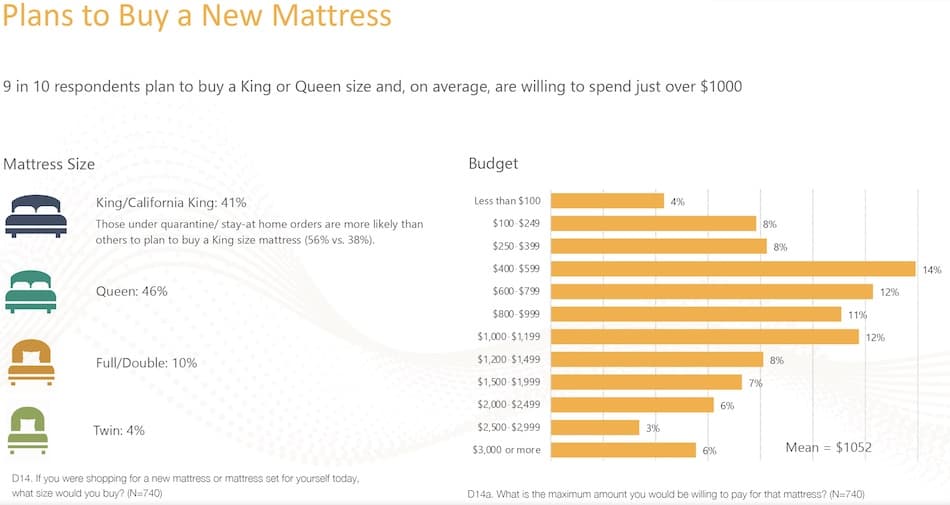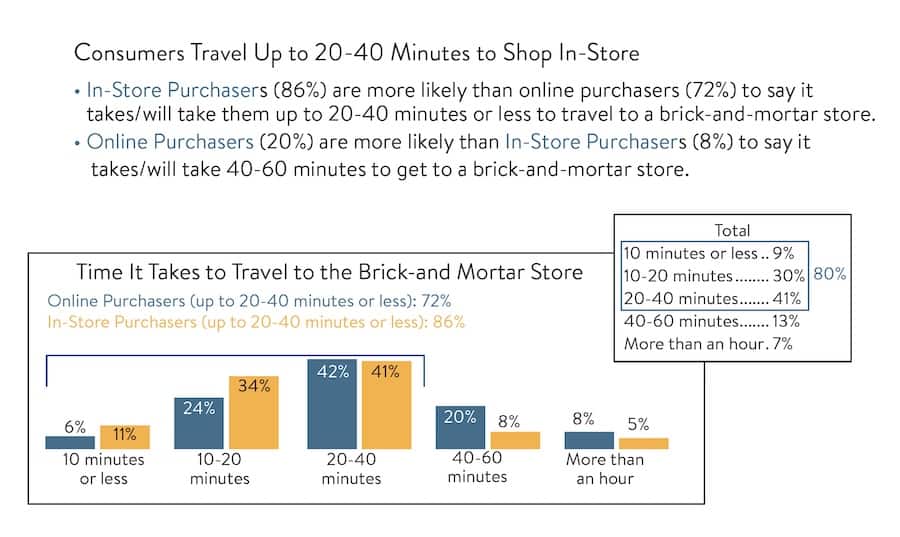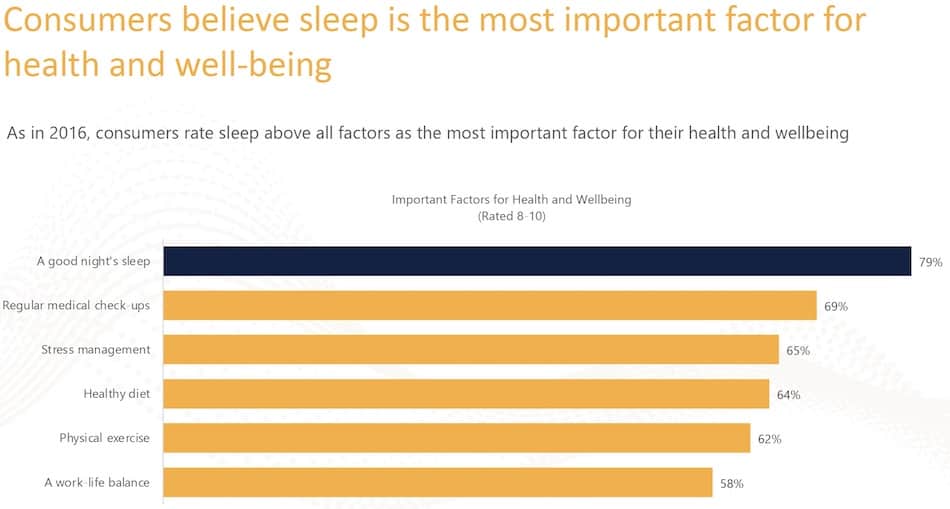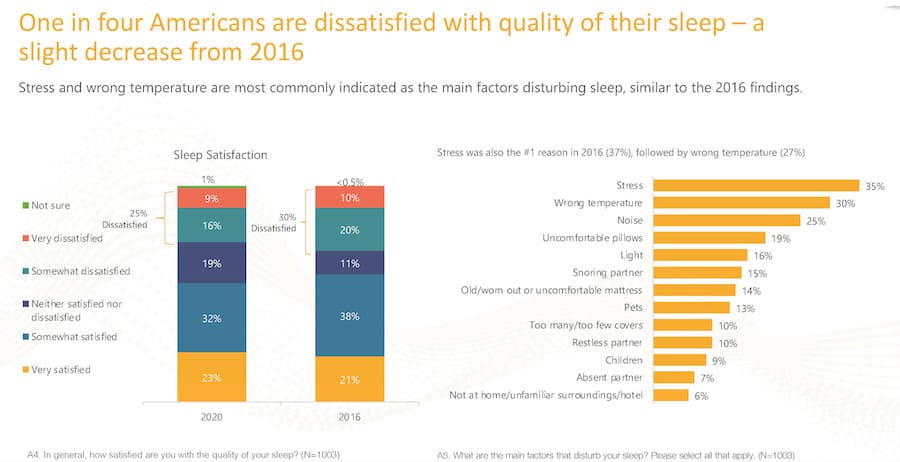The pandemic has led to more mattress shopping, with emphasis on king sizes and increased purchases of accessories, according to Better Sleep Council research
The Covid-19 pandemic has impacted the mattress marketplace in a number of significant ways, a consumer study reveals.
Consumers affected by the pandemic are more likely to look for a new mattress, especially a king-size model; are more likely to purchase sleep accessories like pillows, sheets, mattress pads and mattress protectors; and are more likely to cite home improvement projects as a trigger for mattress replacement.
These are some of the key findings of a major consumer research study conducted by the Better Sleep Council, the consumer education arm of the International Sleep Products Association.
The insights are important particularly as businesses seek to assess the impacts of the Covid-19 pandemic, which continues to affect consumer behavior, although the recent introduction of vaccines has brought hope that the pandemic can be brought under control sometime later this year and that consumer behavior could return to a more normal footing at that point.
As a number of industry analysts have noted, the pandemic has created a renewed focus on the home, a development that, not surprisingly, has had beneficial results for home products like mattresses and sleep accessories, key elements of consumers’ home cocoons.

“It is critical that bedding retailers understand changing consumer perceptions brought about by the Covid-19 pandemic,” said Mary Helen Rogers, vice president of marketing and communications for ISPA. “This BSC study identifies how the pandemic has changed consumer behaviors that benefit the industry.”
“Although the future course of the pandemic cannot be precisely determined at this point, the focus on the home it has generated has the potential to be a long-term driver of bedding business,” she continued.
“A good mattress and good sleep accessories to complement it are at the very heart of consumers’ lives, and never more so than when their overall health is a priority.”
The nationally projectible BSC survey of 1,000 consumers, part of a regular schedule of BSC consumer studies over the past 25 years, took on added importance as mattress marketers sought to understand how the pandemic has changed consumer attitudes about a number of key products.
Many of the conditions that consumers experienced during the pandemic in 2020 when the survey was conducted continue to be an issue today. For example, consumers said last year that 90% of the stores in their community required customers to wear masks while in their stores. That figure could be even higher today, according to bedding observers.
The survey found that one quarter of consumers have experienced changes in their living conditions since the pandemic hit, and a similar number have seen decreases in their household income.
But four in 10 consumers said they would consider or be comfortable making larger household purchases.
It also found that consumers who purchased a mattress within the past six months of the study, a time during which the pandemic was sweeping the country, were more likely than others to say the mattress they replaced was in very bad or bad condition, an indication that their increased time at home caused them to take a closer look at their bedding, the BSC said.
The survey found that consumers under stay-at-home orders were more likely than others to be looking for a mattress. And consumers under stay-at-home orders said they were much more likely than others to plan to buy a king-size mattress.
In addition, consumers currently under stay-at-home orders were more likely than others to say that home improvement/lifestyle issues are a trigger for mattress replacement, with 40% expressing that view.

Examining information sources that consumers use to research mattresses, the survey found that since 2016, the percentage of consumers saying they are going to stores to look around has decreased from 57% to 36%, a finding that is attributable, at least in part, to the coronavirus pandemic, the BSC said.
The consumers also said that during stay-at-home orders, boxed beds, appointment-only shopping, attractive websites and online chats all assumed added importance to them.
The survey respondents also expressed a heightened interest in a wide range of sleep accessories. For example, consumers under stay-at-home orders said they were more likely to purchase pillows, sheets, mattress pads, mattress protectors, comforters, mattress toppers, bed covers and decorative pillows.
“These survey findings underscore the growing importance of sleep accessories,” Rogers said. “Consumers increasingly recognize that sleep accessories add comfort to their bedrooms at a challenging time in our nation’s history when comfort is more important than ever.”
The pandemic also is affecting the industry in other ways, according to another study conducted for the BSC, this one undertaken in late October and early November by Marcus Thomas LLC.
Some of those survey results, including those that found growing interest in purchasing mattresses online — a finding likely due, in large part, to concerns related to the pandemic — were published in the January issue of BedTimes (BedTimesMagazine.com/2021/01/BSC-Research-More-Consumers-Moving-Online).
That BSC survey found that about 69% of consumers who purchased online said they did not visit brick-and-mortar stores in their shopping journey because of Covid-19 concerns. Other reasons these consumers said they did not visit a brick-and-mortar store included finding a better price online (41%) and lack of time to shop in person (25%).
“Because of Covid, I didn’t want to go out,” one shopper said. “So, I shopped online and got a good price.”
The Role of Better Sleep
Consumers under stay-at-home orders put more emphasis on rest, research reveals
The Covid-19 pandemic has changed the way that many Americans are sleeping, a Better Sleep Council survey confirms.
Consumers responding to the survey late last year were twice as likely as those who responded to a similar survey in 2016 to say they are getting more than enough sleep.
And that change may be due, at least in part, to the impact of the coronavirus pandemic, the BSC said. The BSC also noted that consumers under quarantine or stay-at-home orders are nearly four times more likely than others to say they are getting more than enough sleep.
In 2016, just 6% of consumers reported getting more than enough sleep. Last year, that figure jumped to 13%, the survey found. That could be an indication that consumers are prioritizing sleep to help ward off Covid-19, according to the BSC, the consumer education arm of the International Sleep Products Association.

“It is encouraging to see that more consumers are reporting that they are getting more than enough sleep,” said Mary Helen Rogers, ISPA vice president of marketing and communications. “Still, a significant number of Americans say they are not getting enough sleep, an issue that the BSC continues to address with a variety of strategies.”
In 2016, 41% of consumers said they were not getting enough sleep. While that figure dropped five percentage points to 36% last year, that still means more than one in three Americans does not get enough sleep.
The latest BSC survey found that consumers believe sleep is the most important factor for health and well-being, with 79% of consumers expressing that view. That is even higher than the percentage of consumers saying that regular medical checkups are important (69%), that stress management is important (65%), that a healthy diet is important (64%), and that physical exercise is important (62%).
The research also found that one in four Americans are dissatisfied with the quality of their sleep — a slight decrease from the 2016 findings.

And, as in 2016, consumers cited stress and the wrong temperature as the top factors that disturb their sleep. While 35% of consumers said in 2020 that stress was the main factor that disturbed their sleep, that was two percentage points lower than in 2016.
Wrong temperature (30%), noise (25%), uncomfortable pillows (19%), light (16%), a snoring partner (15%), an old, worn out or uncomfortable mattress (14%), pets (13%), and too many or too few covers (10%) were cited as other factors that disturb sleep in the 2020 survey.
The BSC survey also documented consumers’ use of sleep tracking devices and apps. It found that 25% of consumers say they use wearable tracking devices like Apple watches and Fitbits, with 15% saying they use a sleep-tracking app, and 13% saying they use a sleep tracker that is part of or connected to their mattress or bedding.
The use of sleep trackers that are part of the mattress is more common among adults ages 18 to 35. Twenty-nine percent of people in that age group report using those trackers, a higher percentage than in any other age group, the BSC study found.




